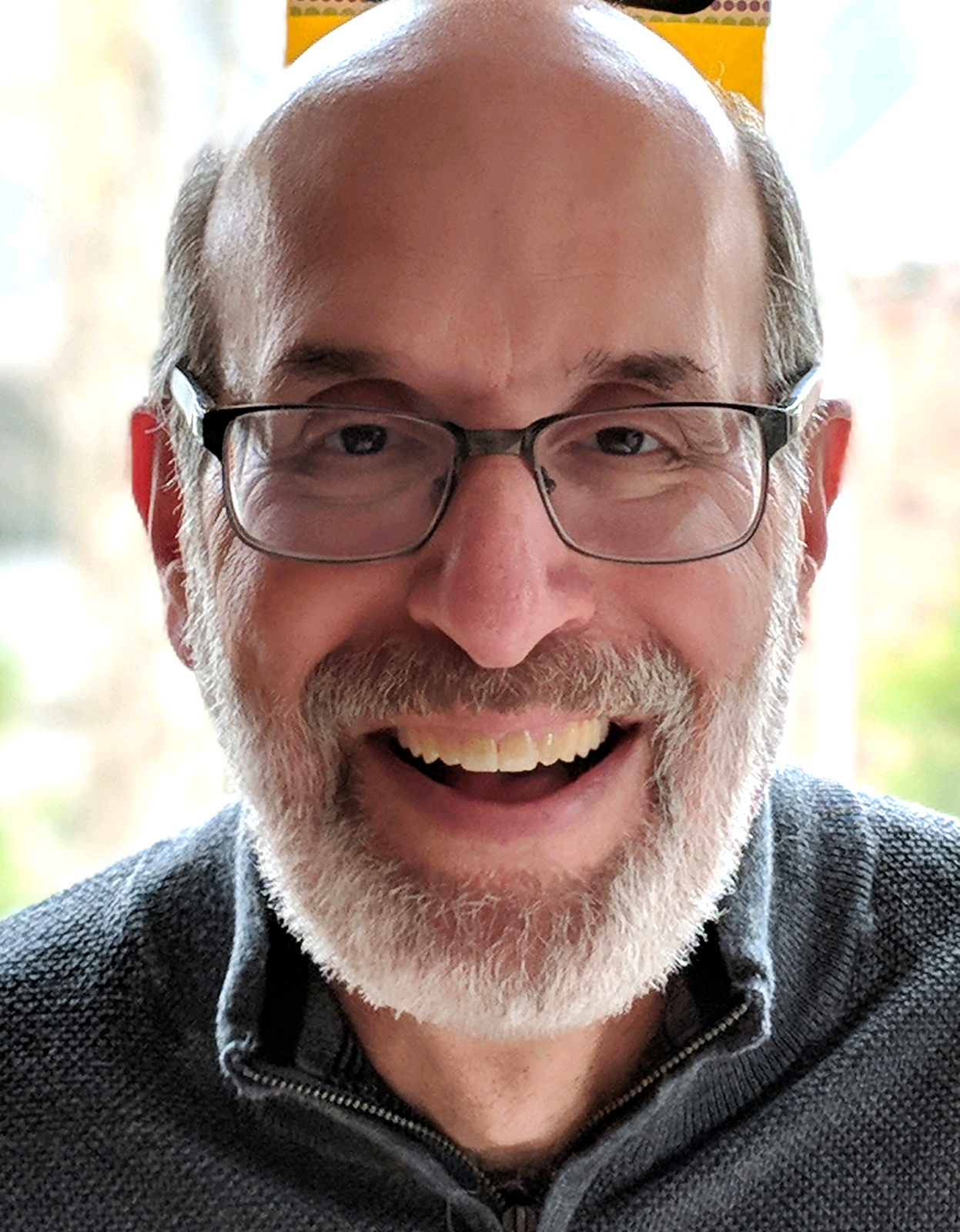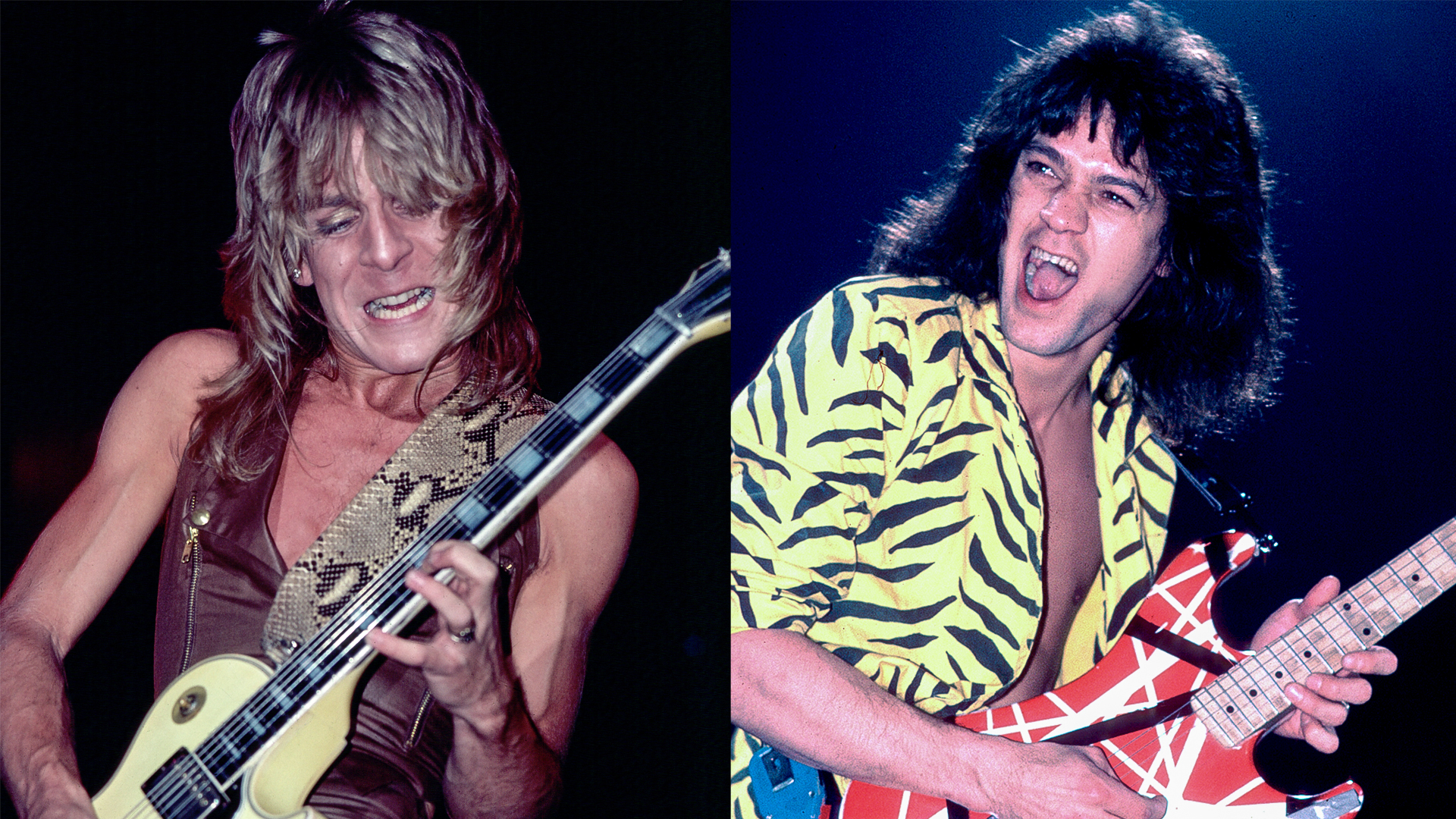“I said, ‘That really f**ked my head up.’ He goes, ‘I don’t need to be reminded of my failings.’” Elliot Easton opens up about the Cars’ Ric Ocasek and says new music is coming featuring the group’s five original members
As a book about the new wave legends comes out, Easton reveals that the surviving members have completed leftover tracks featuring Ocasek and Ben Orr

All the latest guitar news, interviews, lessons, reviews, deals and more, direct to your inbox!
You are now subscribed
Your newsletter sign-up was successful
The Cars are revving up to release some new music by the original band members — all of them.
In the epilogue of his new book, The Cars: Let the Stories Be Told (Da Capo), author and Buffalo Tom frontman Bill Janovitz writes about a batch of recordings surviving Cars members Elliot Easton, Greg Hawkes and David Robinson have been working on from material left behind by the late Ric Ocasek. Singer-bass guitarist Benjamin Orr, who passed away from pancreatic cancer in 2000, is also represented.
“So far there’s five done now, with guitar overdubs and everything,” Easton tells Guitar Player.
Among the titles are “Just Can’t Stop,” “One by One,” “The Factory,” “Crossing the Line,” “Crazy Over You” and “Can’t Stop the Rain.” Of the latter, Janovitz writes that “Elliot’s 25-second solo…is sure to put smiles on the faces of fans, as it did for me. And he added a hook that runs through the song, completely transforming it from the version I heard months before.”

“They sound like Cars songs, they really do,” Easton says. “It was really sort of natural to fall back into that world and think, Okay, here’s a new Ric song. What do I want to do?’ And it was just kind of the same as before, that way.”
Hearing his deceased former bandmates’ voices on the tracks did not faze him, either. “I wouldn’t use the word spooky. It was just, Wow, okay, we’re going back to ‘Cars land,’ and that’s what it was. I had fun with it.
“The only ones we’re working on are ones with good, finished vocals,” Easton adds. “They’ve got good vocals ’cause Ric had a 24-track studio in his basement and could make good quality demos. So all the vocals are well-recorded. It’s not like that Beatles ‘Free as a Bird’ thing, where they got a cassette and had to process it and separate it from instruments to make it sound good. These are good, clean demos — recordings, I should say.”
All the latest guitar news, interviews, lessons, reviews, deals and more, direct to your inbox!

Easton is not sure when, or how, the world will hear the songs, however. That’s up to the band’s manager, Jeff Kramer.
“You’d have to see what Jeff Kramer is thinking about doing with them, how he’s gonna release them,” Easton says. “It could be an EP. It could be a new song in a movie. They’ll come out one way or another. I just don’t know in what form yet. We’ll see what happens to them.”
According to Janovitz, Kramer suggested the surviving band members work on the new Cars songs in 2020, not long after Ocasek’s death on September 15, 2019, at the age of 75. His passing came less than a year after the band was inducted into the Rock and Roll Hall of Fame. Kramer and longtime Cars associate David “Heg” Heglmeier sent Hawkes about 18 songs.
It could be an EP. It could be a new song in a movie. They’ll come out one way or another.”
— Elliot Easton
Together with producer Ed Valausaks and engineer Joel Edinberg, Hawkes began working on them at Q Division studios in Cambridge, Massachusetts. Hawkes then brought in Robinson as well as Easton, who started to add his parts during the summer of 2024.
“I got to hear where they were originally and got to hear the progress and Elliot’s contributions, and it was illuminating,” Janovitz recalls. “It’s like, ‘Here’s the Cars.’ I heard the Ric demo, and now it’s a Cars song. Bingo!
“It was the real opportunity for me to hear the progress from demo to near completion of a Cars song — not exactly the way it worked when the band was actively recording, but similar.”

The band’s creative process is intricately detailed in Let the Stories Be Told, in which Janovitz documents the quintet’s complex internal politics and particularly Ocasek’s ascent to being perceived as the Cars’ main and, at times, sole creative force, despite Easton’s enormous contributions. That’s something the guitarist says is still a sore subject, even though he maintains that, “I love the Cars. I’m very proud of that music — and what I contributed to it.
“There was a little bit of friction, mostly between Ric and myself,” adds Easton, who studied at Berklee College of Music and brought influences ranging from folk to Bakersfield country, blues, the British Invasion, Muscle Shoals soul and classic rockers such as Cream.
“Ric might have thought what I was playing was a little too old school or something,” he says of the player with whom he shared electric guitar duties. “He was very, very into the new, everything new — that’s what he wanted. He once said to me, ‘I hate blues,’ and I was shocked, ’cause I thought, ‘How could you love rock and roll and hate blues?!’
I think that in some ways, musically for Ric, some of what I did was some of his least favorite elements of the band.”
— Elliot Easton
“Some of those things kind of hurt me, because I think that in some ways, musically for Ric, some of what I did was some of his least favorite elements of the band.”
Easton was, famously, the only band member Ocasek did not mention during his Rock Hall acceptance speech. He also talked and joked around with Brandon Flowers of the Killers, who inducted the group, while Easton was making his own.
“I said some really nice things about his wonderful songs,” Easton remembers, “and then… he thanked everybody but me. Make of that what you want. He said he was really nervous and forgot and he was really sorry…. We occasionally talked in the years before he passed away, and I told him. I said, ‘That really fucked my head up.’ He goes, ‘I don’t need to be reminded of my failings.’ It wasn’t exactly an apology; it was his way of saying he was sorry, I guess. That was Ric. We had a very weird relationship at times.”

Easton — who went on to play in the all-star Empty Hearts and recently subbed for Waddy Wachtel in another “supergroup,” the Immediate Family — is very clear about his relationship as part of the Cars’ songs, however. “The songs were presented to us in this extremely skeletal form,” he says. “Ric would just play his kind of eighth-note style.
“But without what we did to them, they could’ve ended up just on a cassette sitting in a drawer. I think we turned them into Cars songs — whatever that means. When the five of us got ahold of them and started coming up with lines and hooks and intros and solos and counterpoint melodies and things to add to choruses and stuff, that’s what made them catchy.
“I used to think, What can I do with this piece of music, that will lift it and add something new?”
Without what we did to them, they could’ve ended up just on a cassette sitting in a drawer. I think we turned them into Cars songs — whatever that means.”
— Elliot Easton
So should the Cars’ writing credits, which almost always went to Ocasek alone, have better reflected that input — as the Police’s Andy Summers and Stewart Copeland are alleging in a recent lawsuit against bandmate Sting.
“I had similar feelings,” Easton acknowledges. “I felt that. Y’know, a lot of bands do it differently; some bands just split everything four or five ways, regardless of who wrote the songs. In other bands musicians are credited for contributions, with maybe a little bit of the publishing.
“But Ric would always say, ‘Look, I started with the blank piece of paper, and I wrote the song.’ And the fact he wasn’t legally bound to share it or to even give anybody a little taste, just to acknowledge their contribution — he always chose not to. He wouldn’t even consider acknowledging our contributions that way; it would only end up as a fight, if somebody would press that issue.
“He was very sensitive about it. It was brought up, and it didn’t go well.”

Nevertheless, Easton remains confident that the riffs and contributions he made to Ocasek’s songs were part of what ultimately put them over the top.
“Let me put it this way to you,” he says. “Ric had a group with Ben called Milkwood that Greg played in. Nothing happened with it. They had a band before the Cars called Richard and the Rabbits. Nothing happened. There were other things they were doing.
When you put a bunch of ingredients into a pot, it becomes what it becomes, and that’s just how it was in the Cars. There’s a lot of different elements.”
— Elliot Easton
“Then I joined them and something happened. What do you want me to say about that? I don’t mean it in any way as braggadocio. I just mean we had finally hit on a recipe that worked and put the songs across in a way that lots of people loved, and that didn’t happen until I came into the picture.
“I’m not trying to be immodest — I want to stress that. It’s just that when you put a bunch of ingredients into a pot, it becomes what it becomes, and that’s just how it was in the Cars. There’s a lot of different elements.”
In addition to the new book, the Cars’ past will be represented with the October 31 release of Heartbeat City (Deluxe Edition), a new treatment of the group’s quadruple platinum fifth studio album, which includes unreleased demos, alternate mixes and a full live concert from 1984 in Houston.
Gary Graff is an award-winning Detroit-based music journalist and author who writes for a variety of print, online and broadcast outlets. He has written and collaborated on books about Alice Cooper, Neil Young, Bob Seger, Bruce Springsteen and Rock 'n' Roll Myths. He's also the founding editor of the award-winning MusicHound Essential Album Guide series and of the new 501 Essential Albums series. Graff is also a co-founder and co-producer of the annual Detroit Music Awards.

